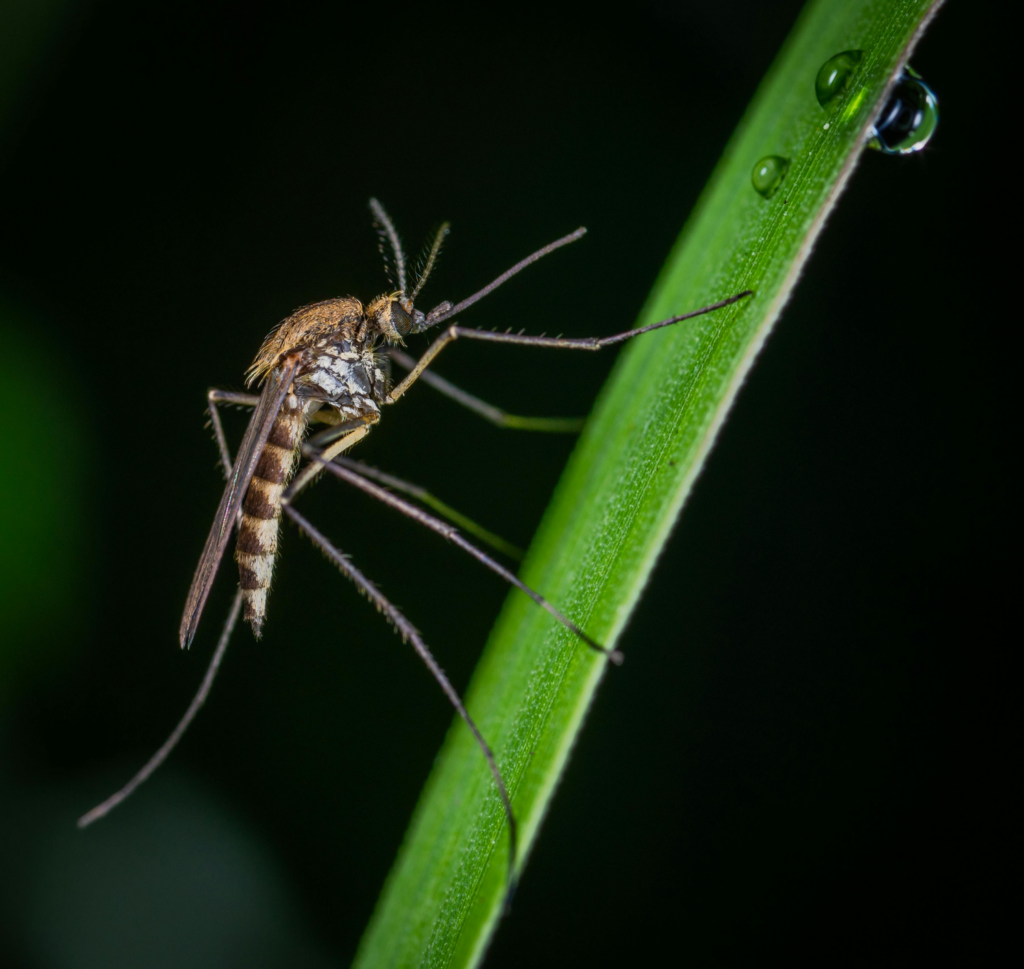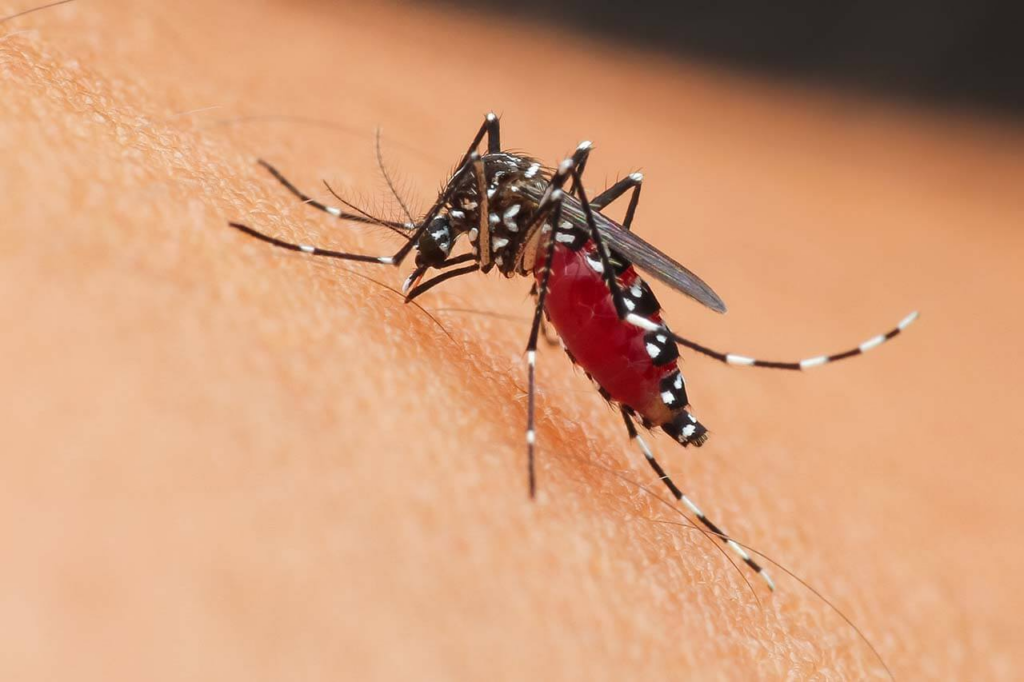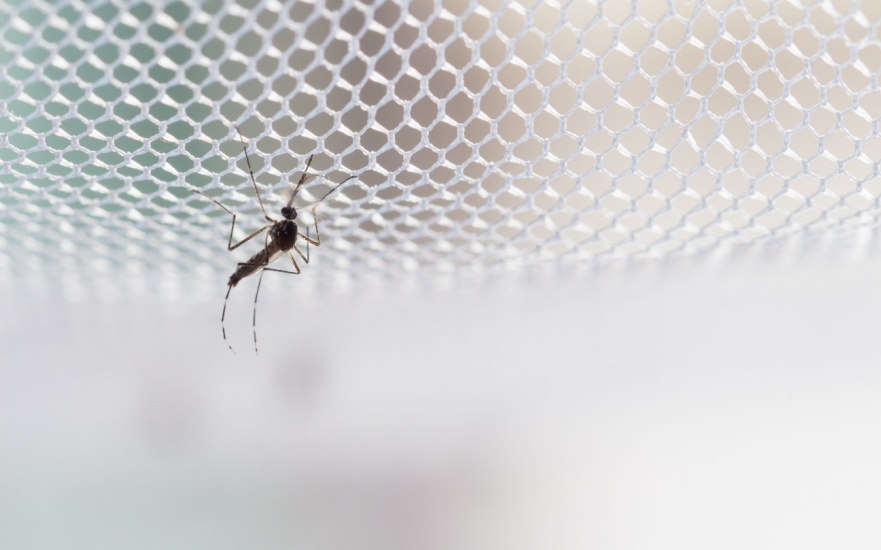Dallas has a warm and humid climate. This makes it a great place for mosquitoes to live. Recently, mosquitoes have come back to North Texas, making people worried about West Nile virus.
Dallas County Health and Human Services found mosquitoes with West Nile virus. This means there’s a health risk for people living there.
Wondering why mosquitoes love your yard? It might be because of standing water, lush plants, or bad drainage. To find out more, check out this article on Vinx Pest Control.
Key Takeaways
- Mosquitoes are a common issue in Dallas due to its climate.
- West Nile virus is a significant health risk associated with mosquito infestation.
- Standing water and poor drainage can contribute to mosquito breeding.
- Lush landscapes can attract mosquitoes to your yard.
- Understanding the causes can help in preventing mosquito infestation.
The Mosquito Situation in Dallas
Summer is here, and so are the mosquitoes in Dallas. The warm weather and heavy rains mean mosquito season is starting. Mosquitoes are around all year in Texas, but more in the summer.

Current Mosquito Population Trends
Mosquito numbers in Dallas are going up. This is because of the city’s weather and where it’s located. Rain and standing water are perfect for mosquito eggs to hatch.
- Standing water around homes and public areas contributes to mosquito breeding.
- Warm temperatures and humidity facilitate mosquito activity.
- Mosquitoes can be active throughout the year in Dallas, but peak during summer.
Why Dallas Climate and Geography Attract Mosquitoes
Dallas is a great place for mosquitoes because of its weather and land. The warm air, moisture, and rain help them breed.
Some reasons why mosquitoes like Dallas include:
- Standing water sources, like ponds and clogged drains.
- Warm temperatures that let mosquitoes stay active all year.
- The area’s many water bodies and wetlands.
Knowing why mosquitoes are drawn to Dallas helps us fight them. By understanding what attracts them, we can reduce their numbers.
Common Types of Mosquitoes Found in Dallas
Knowing the types of mosquitoes in Dallas is key for keeping people safe. The city’s weather and land make it a good place for many mosquitoes. This can be bad for people’s health.
Culex Mosquitoes (Southern House Mosquito)
Culex mosquitoes, also called Southern House Mosquitoes, are common in Dallas. They carry diseases.
Identification Features
Culex mosquitoes are brown with a special pattern on their belly. They are medium-sized and often found near people’s homes.
Typical Behavior Patterns
These mosquitoes are most active at night. They like to feed on humans and animals. They live in standing water, like clogged drains.
Aedes Mosquitoes (Asian Tiger and Yellow Fever)
Aedes mosquitoes, like the Asian Tiger and Yellow Fever ones, spread diseases like Zika and dengue fever.
Visual Identification
Aedes mosquitoes are black with white stripes. They are small and active during the day.
Activity Patterns in Dallas
In Dallas, Aedes mosquitoes are active during the day. They are most active early morning and late afternoon. They live in fresh water, like flowerpots and bird baths.
Anopheles Mosquitoes
Anopheles mosquitoes spread malaria. Though rare in the US, they are a risk.
Anopheles mosquitoes have a special way of resting. Their belly points up. They are active at dawn and dusk.
- They live in clean, standing water.
- They like areas with plants.
- Getting rid of standing water around homes helps control them.
Vinx Pest Control fights these mosquitoes. They use many strategies to keep Dallas safe from mosquito bites.
Dallas Climate and Mosquito Breeding Seasons
It’s important to know how Dallas’s weather affects mosquitoes. The city’s warm and humid air is perfect for mosquitoes.

Peak Mosquito Months in North Texas
In North Texas, mosquitoes are most active in late spring and early fall. They start in May and go until September. July and August are usually the busiest months.
- May: Mosquito activity begins to increase as temperatures rise.
- June to August: Peak mosquito season, with high temperatures and humidity creating ideal breeding conditions.
- September: Mosquito activity starts to decline as temperatures cool down.
How Dallas Weather Patterns Affect Mosquito Activity
Dallas’s weather greatly affects mosquito activity. Rainfall and temperature are key factors.
Impact of Rainfall
Rainfall is very important for mosquitoes. They need water to lay eggs. After rain, mosquitoes have more places to breed.
- Heavy rainfall events can lead to an increase in mosquito populations.
- Standing water around homes and public areas becomes a breeding ground for mosquitoes.
- Effective mosquito prevention strategies include eliminating standing water around properties.
Temperature Effects
Temperature also affects mosquitoes. They like temperatures between 70°F and 90°F. Outside this range, they are less active.
- Temperatures above 90°F (32°C) can slow down mosquito activity.
- Temperatures below 50°F (10°C) typically halt mosquito activity.
- For mosquito control experts in Dallas, TX, understanding these temperature effects is key.
Knowing how Dallas’s climate affects mosquitoes helps prevent them. Residents can stop mosquitoes by removing standing water and using repellents.
Health Risks Associated with Mosquitoes in Dallas
Mosquitoes in Dallas are a big health risk. They are not just a bother. They can spread serious diseases.
West Nile Virus Prevalence in Dallas County
West Nile virus is a big problem in Texas. Dallas County has seen a lot of this virus. Mosquitoes can spread disease, including West Nile virus. This can make people very sick.
The virus spreads through mosquito bites. Symptoms can be mild or very serious. They include fever, headache, and body aches. In bad cases, it can cause brain problems.
Zika and Other Mosquito-Borne Diseases
Other diseases like Zika, dengue fever, and chikungunya can also spread in Dallas. Zika is less common in Texas but can spread. Aedes mosquitoes carry these diseases.
Dengue fever and chikungunya are also worries. They can make people very sick. In some cases, they can cause serious problems.
Allergic Reactions to Mosquito Bites
Not everyone gets sick from mosquito bites. But, most people react to them. Symptoms include redness, swelling, and itching.
Common Symptoms
- Redness and swelling at the bite site
- Itching or a rash
- In some cases, blistering or bruising
When to Seek Medical Attention
Most mosquito bites are just annoying. But, sometimes you need to see a doctor. If you have trouble breathing or a fast heartbeat, get help right away.
If you have symptoms like a high fever or confusion, see a doctor. These could be signs of a mosquito-borne disease.
Identifying Mosquito Breeding Grounds in Your Dallas Property
To get rid of mosquitoes in your Dallas yard, find where they breed. Mosquitoes lay eggs in standing water. Even a little water can be a breeding spot.
Common Water Sources That Attract Mosquitoes
Mosquitoes like many water sources around your home. Some common ones are:
- Bird baths and pet water dishes
- Clogged gutters and downspouts
- Discarded tires and containers that can hold water
- Flowerpots and planters with standing water
Standing Water Issues
Standing water is where mosquitoes breed. To stop them, remove standing water around your home. Look for:
- Ponds or puddles that don’t drain properly
- Clogged drains and pipes
- Low-lying areas where water collects
Drainage Problems
Poor drainage causes standing water, perfect for mosquitoes. Make sure your drainage works well by:
- Checking for blockages in gutters and downspouts
- Ensuring water flows away from your home’s foundation
- Installing French drains or other solutions if needed
Hidden Breeding Spots You Might Miss
Some breeding spots are easy to miss. Look for:
- Underneath decks and porches where water can collect
- Inside hollow tree roots or rock piles
- In abandoned or neglected pools or ponds
For more tips on mosquito control, visit Vinx Pest Control.

Effective Mosquito Prevention Strategies for Dallas Homes
To keep your Dallas home safe from mosquitoes, you need to do a few things. This includes taking care of your yard, managing water, and using barriers. These steps help lower the chance of getting sick from mosquitoes and make your outdoor space better.
Yard and Garden Maintenance
Keeping your yard and garden clean is important to stop mosquitoes. Mosquitoes need water to lay eggs, so get rid of any standing water around your home.
- Regularly mow your lawn to reduce hiding spots for mosquitoes.
- Trim back shrubs and bushes to improve airflow and reduce moisture.
- Remove weeds and debris that can collect water.
Water Management Techniques
Managing water well is key to stopping mosquitoes from breeding. Here are some tips:
- Check your property for any sources of standing water, such as clogged drains or bird baths.
- Use mosquito dunks or larvicides in areas where water cannot be eliminated.
- Ensure that your gutters are clean and functioning properly.
Protective Barriers and Screens
Putting up barriers and screens can help keep mosquitoes out of your home and outdoor areas.
Window and Door Protection
Make sure all windows and doors have screens that work well. Think about using window screens with a tight mesh to keep mosquitoes out.
Outdoor Living Space Solutions
For outdoor spaces, think about using mosquito netting or screens. This makes a mosquito-free area. You can also use outdoor fans to keep mosquitoes away, as they can’t fly well.
For better mosquito control, talk to a pro like Vinx Pest Control. They are experts in getting rid of mosquitoes in Dallas, TX.
Professional Mosquito Control Solutions from Vinx Pest Control
Vinx Pest Control offers top-notch mosquito control for Dallas homes. They know all about local mosquitoes and how they breed. This means you can enjoy the outdoors without bugs.
Comprehensive Mosquito Treatment Plans for Dallas Properties
Vinx Pest Control makes special plans for each home. Their detailed approach includes:
- Checking your home for where mosquitoes breed
- Using special treatments to kill mosquitoes
- Teaching you how to stop mosquitoes from coming back
Long-Term Mosquito Management Strategies
Keeping mosquitoes away for good is key. Vinx Pest Control has plans for regular checks and treatments. This stops mosquitoes from coming back.
Benefits of Choosing Vinx Pest Control for Mosquito Extermination
Choosing Vinx Pest Control has many perks, like:
- Great mosquito control that lowers disease risk
- Treatment plans made just for your home
- Safe methods that don’t harm the environment
Customized Treatment Approaches
Vinx Pest Control knows every home is different. They make special plans for your home’s mosquitoes and where they breed.
Environmentally Responsible Methods
Vinx Pest Control cares about the planet. They use safe products and methods. This keeps everyone and the environment safe.
DIY Mosquito Repellents and Traps That Work in Dallas Climate
Dallas folks can fight mosquitoes with DIY repellents and traps. These methods work well with the local weather. Even though pros like Vinx Pest Control help a lot, these DIY tricks can add extra protection.
Natural Mosquito Repellents
Some natural things can keep mosquitoes away. Citronella, lemongrass, and peppermint are good at this. You can use them in candles, sprays, or lotions to keep mosquitoes off.
- Citronella candles can be placed outdoors to create a mosquito-free zone.
- Lemongrass oil can be mixed with a carrier oil for skin application.
- Peppermint can be used in its essential oil form or as a plant in gardens.
Effective Mosquito Traps for Home Use
Mosquito traps can help lower mosquito numbers around homes. These traps use UV light, CO2, or other things to draw mosquitoes in.
- UV light traps can be placed in areas where mosquitoes are most active.
- CO2 traps mimic human breath, attracting mosquitoes.
- Fan traps use a fan to pull mosquitoes into a container.

Mosquito-Repelling Plants for Dallas Gardens
Some plants can keep mosquitoes away and make gardens look nice. These plants add beauty and help keep mosquitoes off.
Native Plants That Deter Mosquitoes
Native Texas plants like Texas sage, lantana, and marigold repel mosquitoes. They are easy to care for and work well against mosquitoes.
Strategic Placement for Maximum Effect
To get the most out of these plants, place them smartly in your garden and yard. Putting them near where you sit outside or by doors works best.
- Plant mosquito-repelling plants around patio areas.
- Place them near doors and windows.
- Use them as borders for gardens and yards.
Conclusion: Taking Control of Mosquitoes in Dallas
It’s important for Dallas folks to manage mosquitoes well. This stops them from being a big problem and health risk. Knowing about mosquitoes, how they breed, and the dangers they bring helps a lot.
Keeping your yard and garden clean, managing water, and using barriers can help a lot. For the best results, think about getting help from experts like Vinx Pest Control.
By doing these things, Dallas people can stay safe from mosquito-borne diseases. They can also enjoy being outside without mosquitoes bothering them. It’s a team effort to keep mosquitoes away, and with the right steps, we can do it.
FAQ
Q: What are the most common types of mosquitoes found in Dallas?
A: In Dallas, you’ll find Culex, Aedes, and Anopheles mosquitoes. Culex mosquitoes carry West Nile virus. Aedes mosquitoes spread Zika and dengue fever.
Q: How does Dallas’s climate affect mosquito activity?
A: Dallas’s hot summers and mild winters are perfect for mosquitoes. Rain and temperature affect when mosquitoes are most active. This is usually during the warmer months.
Q: What are the health risks associated with mosquitoes in Dallas?
A: Mosquitoes in Dallas can spread diseases like West Nile virus and Zika. They can also cause allergic reactions, from mild to severe.
Q: How can I identify mosquito breeding grounds on my property?
A: Look for water sources like clogged drains and pet water dishes. Also, check for hidden spots like flowerpots and gutters where water can collect.
Q: What are some effective strategies for preventing mosquito infestations in my Dallas home?
A: To prevent mosquitoes, maintain your yard and manage water. Check for standing water and install screens on windows and doors.
Q: What are some DIY mosquito repellents and traps that work in the Dallas climate?
A: Use natural oils like citronella and lemongrass to repel mosquitoes. Traps with UV light or CO2 work well. Planting citronella, lavender, and basil can also help.
Q: When should I seek professional mosquito control services?
A: If mosquitoes won’t go away, get help from a company like Vinx Pest Control. They can handle the problem safely and effectively.
Q: How can I prevent mosquito bites?
A: Use repellent, wear protective clothes, and avoid peak mosquito hours. Mosquito nets and screens on windows and doors can also help.
Q: What is mosquito fogging, and is it effective?
A: Mosquito fogging uses a fine mist of insecticide to kill mosquitoes. It’s effective but should be done by a professional for safety and best results.
Q: How can I manage mosquito larvae in standing water?
A: Get rid of standing water and use larvicides. Introduce fish that eat mosquito larvae. Regular yard checks can also help prevent mosquito growth.



